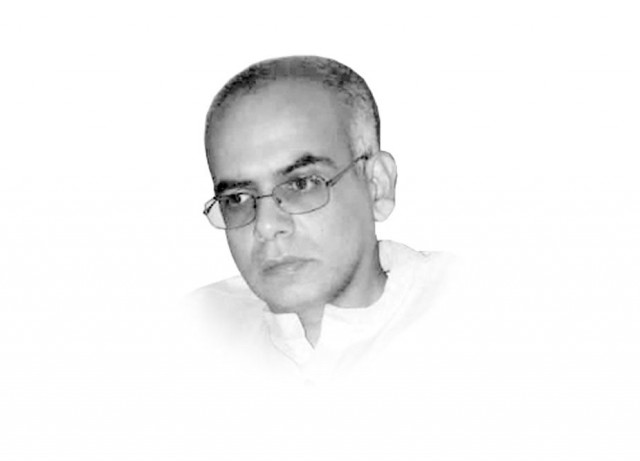Inequality, polarisation and tribalism
This will help lessen the acuteness of inequalities between poor and rich nations

The writer is a development anthropologist. He can be reached at ali@policy.hu
While international development organisations like the IMF or the World Bank keep touting the success of their economic models by pointing to reductions in absolute poverty, poverty is only half of the inequality equation. Inequality is also about the size of the gap between the wealthy and the poor.
It is obviously important to be concerned about absolute poverty and to focus on alleviating the suffering that accompanies it. Yet, the top-down and market-driven models of growth favoured by major development agencies, and by the elites within developed and developing countries alike, have led to the world having become increasingly unequal, even if it has made progress in reducing absolute poverty.
According to an Oxfam report released earlier this year, 82% of the wealth generated last year went to the richest one per cent of the global population, while the 3.7 billion people who make up the poorest half of the world saw no increase in their wealth. This growing wealth gap is a major problem.
A social psychologist, Keith Payne, has recently argued that human beings are in fact hardwired to notice relative differences. Payne provides data to show how relatively less well-off people within unequal societies are prone to become less healthy, angrier, and more politically polarised. This is not good news for our current world of hyper-commercialisation and pervasive advertisement, where the have-nots are constantly being reminded that they are poorer and less powerful than a smaller and more privileged segment of their societies.
Payne’s research shows how inequality produces serious health problems like chronic diseases, obesity, and substance abuse problems, and, ultimately, shorter life expectancies. High-inequality countries also have more crime and more school dropouts. Inequality also makes people who feel left behind look for ways to make sense of a world that seems unfair, and often they do that by retreating into political or religious or ethnic identities which are exclusionary and which create greater friction in society.
While focused on rich countries like the US, Payne’s research is still instructive for less wealthy but also for highly unequal countries like ours. Pakistan has been pursuing top-down economic growth models since the Ayub era, which continue to exacerbate inequality. Inequality does not only exist between people but also between urban and rural areas and between different regions of the country. Public institutions which can help reduce inequality and promote social mobility are on the verge of collapse, such as the government schooling system. The well-to-do rely on the private sector for provision of basic services, including safe drinking water to healthcare, while the have-nots continue to suffer due to languish.
To contend with inequalities in the Pakistani context, well-designed policies focusing on broadening the coverage of social spending are needed. Donors will probably remain unwilling to foot the bill for these measures so they must be self-financed through progressive measures, instead of indiscriminate taxation using flat rates.
The argument here is not that everyone needs to become the same, or even be equally successful within any given society. No political system has been able to ensure such equality. Yet, we can expect our governments to play a more assertive role in negotiating trade-offs between free markets and regulation and other affirmative measures, which better even out the gains of globalisation.
In fact, polices undertaken to minimise internal inequalities would not only help improve the lives of disempowered workers, but also help lessen the acuteness of inequalities between poor and rich nations.
Published in The Express Tribune, June 8th, 2018.
Like Opinion & Editorial on Facebook, follow @ETOpEd on Twitter to receive all updates on all our daily pieces.















COMMENTS
Comments are moderated and generally will be posted if they are on-topic and not abusive.
For more information, please see our Comments FAQ